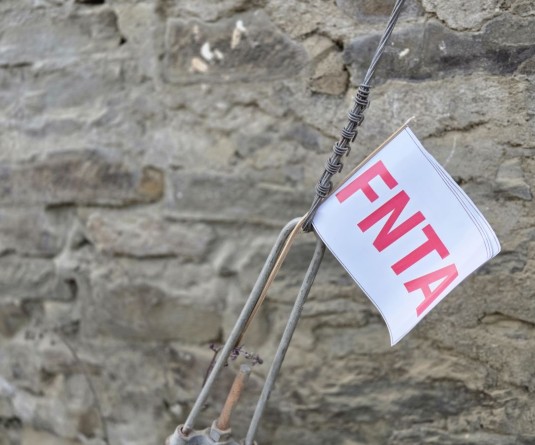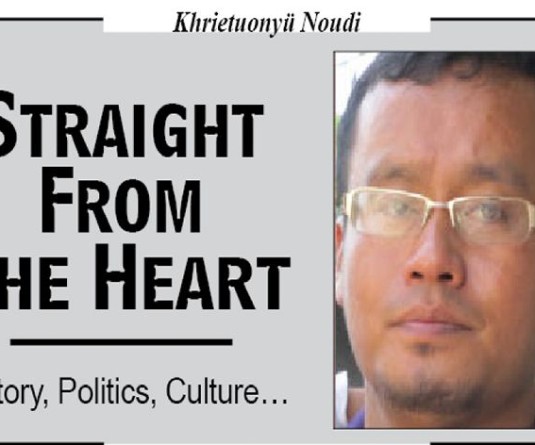
Longrangty Longchar
Now that a semblance of normalcy has arrived after weeks of turmoil and uncertainty, it is time to make some clear headed study of what could have precipitated those emotions and upheavals that shook our society and paralyzed the government machineries for nearly a month.
On the face level, the whole issue might seem as revolving around the Urban Local Body (ULB) elections and the 33 percent reservation. But, the unprecedented emotions and the unity among the different tribal bodies, the willingness to sacrifice lives, the complete shutdown of government machineries and the determination to go on till the end by the tribal bodies indicate that the recent upheavals was not only about the ULB elections or 33 percent women reservation issues.
Anyway, it would be imprudent to point fingers here and there now; however it would also be equally insensible if we fail to find out ways to understand how and why the whole incident started. Many good writers have pointed out in the media, the peoples’ anger and frustration was reaching its boiling point. There were the different issues of corruption like the PDS scam, the fuel adulteration issue, the non-payment of salaries to the teachers, the 15 minutes of assembly sitting etc. etc. The pent-up frustration of the public was surely going to give way one day or the other like a volcano. Therefore, it can be rightly presumed that the recent upheaval nothing but just a concentration of the peoples’ frustration at the government to address the different issues confronting the people. We can also say that the January 31 state cabinet decision to go ahead with the ULB election in some areas was just the immediate cause of the ‘peoples’ movement’; it was going to be started sooner or later, anyway. And it happened costing three lives, destruction of crores of rupees worth of property and an uncalculated but colossal loss to the economy.
Therefore, one cannot help but wonder how and why the state government (here I want to imply not only the politicians and the legislators but also the bureaucracy too) could remain blind to the resentment and restlessness of the common people in the state. Is it a global trend? That’s a question that struck my mind while going through the essay ‘The fate of empires’ by Lt Gen John Glubb [you will find the pdf file on the net]. In that essay, Glubb states that an empire lasts about 250 years or ten generations and it passes through different epochs leading to the rise, climax and eventual decline of historical empires.
He says that first there is the ‘age of pioneers’, then ‘the age of conquest’, ‘the age of commerce’, ‘the age of intellect’, ‘the age of affluence’ and ‘the age of decadence’. Here the last age – the age of decadence – is quite interesting. John Glubb says that the last stage of all Empires – the age of decadence – is marked by a lowering of moral virtues and principles usually championed by the super affluent group and the middle-class.
‘The show of wealth and conspicuous consumption lifestyles of the affluent naturally leads to an uprising by the poorer sections of society to revolt’. Most Empires are destroyed from within and a sort of implosion occurs usually instigated by the less privileged members of that society.
The last stage of the empire is usually marked by the following social upheavals: lowering of societal moral standards, a large and undisciplined Army, glorification of celebrities, economic meltdown brought about by a devaluation of the currency, says Glubb.
Of course, we cannot call our Naga society as an Empire, but some intellectuals in the world are evaluating whether the Western civilization is going through the last stage of John Glubb’s ‘fate of empires’, that is, the age of decadence. If so, are we also being influenced? That is a troubling question that we need to seriously ponder upon.
Look at our society today: years back, there was the extravagant Road Show by the government; the ongoing lavish Hornbill Festivals when people are deprived of their salaries and common people are trying to make both ends meet, the rampant corruption etc. The moral degradation, the disillusionment among the youths, the lack of truth, the ever growing gap between the rich and the poor, the lack of responsibility in the governance system etc are glaring examples that our society is going through a very dark chapter. It is for the individual to judge for himself/herself.
However, the bottom-line is simply this: it is time for the society to wake up and introspect. Unless and until the common people are contented in their simple lives, then there will always be turmoil in the society. It must be remembered that almost all the world’s great revolutions started because of the frustration of the common people who saw their rulers as (and rightly so) enjoying a lavish lifestyle at their expense. The problems of our society are far from over. Who knows it might just be the starting point as the people are getting to know more and more about their rights and the working of the government due to the easy transmission of information among the masses. Thus, though the situation might seem to have subsided at the moment, yet the new government if they don’t read the writings on the wall, then they would find themselves in more trouble. In this regard, the leadership, wisdom and statesmanship of our Chief Minister Dr Shürhozelie Liezietsu will be tested, which will either make or unmake his rich legacy.
Need for Statesmanship
For many people, including layman like me, Dr Shurhozelie comes in as a multi-dimensional personality. There might not be many who don’t know about him. He is known as a veteran politician, a former minister, an academician and also a highly respected elder of the society. Above all, he is known as a staunch regionalist, a political stance that has earned him respect from his colleagues and even from his detractors from other political parties; and he is regarded as one of the greatest politicians in Nagaland along with the likes of Dr SC Jamir, Hokeshe Sema, Vizol etc. Surely, it was because of him only that a smooth transition of power could be initiated after the stepping down of former Chief Minister TR Zeliang.
His onerous work has just begun and it will be by no means easy. But as ‘every cloud has a silver lining’, the recent turmoil presents Dr Shürhozelie with a united Naga civil society who, hopefully, would be willing to discuss the different issues with him. Here, if the Chief Minister could, with his rich political experience and academic wisdom, could play the role of an active statesman, then surely the Naga public would not say ‘no’ to what they feel is in the best interest of the people. This moment presents the best time for the state government to reach out to the common people when their thoughts are united. If the government could ask each legislator to go to their people and discuss about the ‘August 3 Framework Agreement’ as was done in 2015; what is holding back the state government to depute its legislators to its respective constituencies to discuss about the NM Act 2001 or 33 percent reservation with the stakeholders too? It will be unwise to leave this ULB election issue in the backburner because it will crop up one day or the other.
It would be good if each legislator could meet their electorates, clear their doubts, gather the diverse views and opinions and discuss it threadbare in the assembly. Surely, such discussion must take more than the usual fifteen minutes in the assembly; and what would be more better for the public to see their Honorable legislators engaged in heavy discussion in the Legislative Assembly? The works seems difficult but not impossible because the public deep in their hearts surely understand that their representatives have good meanings in their minds. For once, it is time for the Honorable legislators to reach out to the disenfranchised masses for a more harmonious society.
In the same light, the Naga tribal bodies also should now focus on trying to bring the issue to an amicable long term solution through dialogue. Their determination to safeguard Article 371 A is not clearly understood by all concerned; now they should take opportunity of the unity among the different tribes try to bargain as much as possible from the state government. The time couldn’t be more ripe or advantageous as is now.
It is still early to say what the days or months ahead will bring because politics is an unpredictable game which can completely change overnight. However, it is strongly hoped that under the astute leadership of Chief Minister Dr Shürhozelie Liezietsu, his respect among his colleagues and the Naga people, it is hoped that he would steer the state towards the right path where every Naga, irrespective of tribe or gender, rich or poor, can heave a sigh of relief and go on with their daily works. If there is a solution for every problem, then who knows, if all the stakeholders play their cards well, then this opportunity might be a time to remove the tribalism among us, a time for reconciliation and a time for envisioning a united Naga society for posterity to come. Yes, there surely will be lot of forces involved in our endeavor for a peaceful and progressive society. Therefore, all that the public can say or do now is to pray God to grant wisdom to all the Naga leaders.





